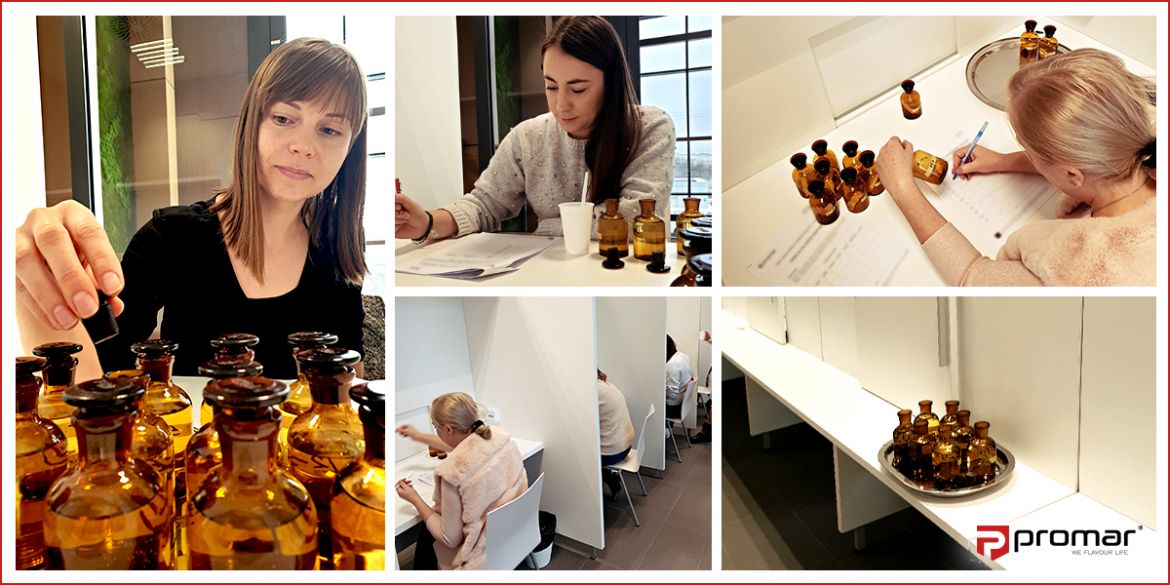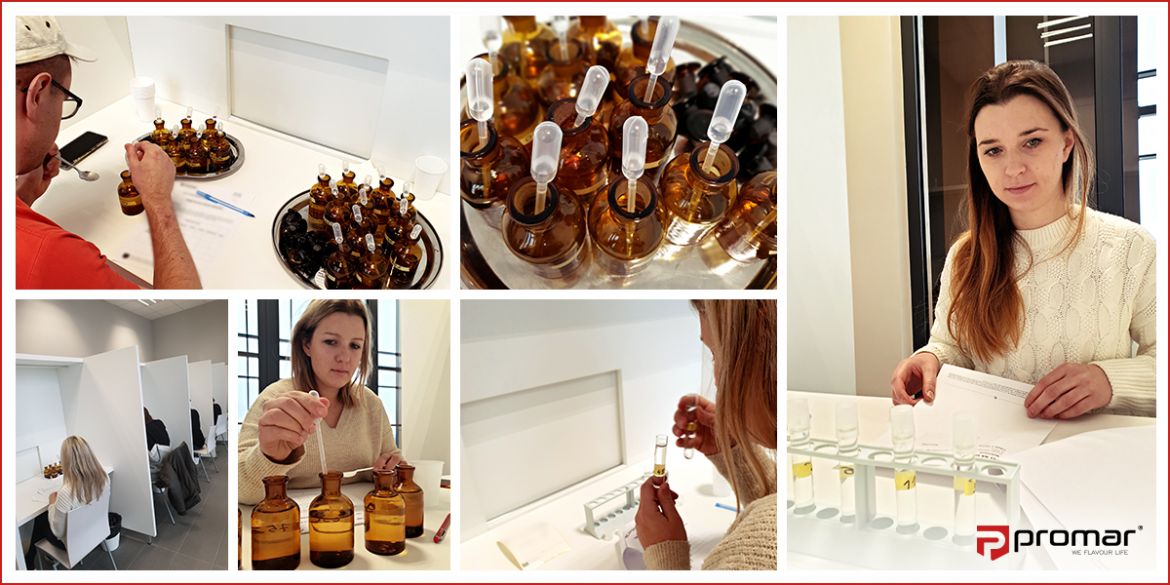Ensuring repeatability and maintaining the highest final product quality are essential for our business. At PROMAR, these are particularly important for the R&D and Quality Control Department, where our teams are dealing with raw material and product quality assessments on a daily basis. Sensory evaluation is a crucial research tool, used not only to verify the quality of raw materials and products – it is also indispensable when designing new products, assessing their stability, trying out new raw materials.
Sensory analysis is a field of analytics that treats senses as a measuring instrument, while maintaining the proper conditions for evaluation, as well as ensuring that requirements for the testing personnel are adhered to. Evaluation involves sight, touch, smell, taste and hearing that are used to define consistency, scent, texture, external appearance or tastiness, which all contribute to the overall taste-smell-touch experience. It is precisely these factors that account for the sensory attractiveness of a product. Evaluations are conducted by the team of evaluators, also called the sensory panel. These are people with particular predispositions, whose sensory sensitivity is extraordinarily high.
Quality of senses under control
At PROMAR, we work with our own experienced sensory panel, composed of our own employees, who follow a path of continuous learning. It consists of a dozen or so people, selected based on the results of appropriate tests, including those that are to rule out taste blindness or color blindness, determine taste sensitivity thresholds and also differentiation tests. Having our own sensory panel provides great added value for the entire company. It allows us to perform in-house testing of prototypes, raw materials and finished products. To ensure the highest quality and proper evaluation, our panel members undergo internal tests at least once a year, to analyze their sensory sensitivity and ensure that the entire team are properly aligned. This is a very important element of training, verifying the sensitivity level of the evaluators, which is crucial for the everyday work of our production engineers. The test also verifies whether the panel members are capable of achieving the same analysis results under the same conditions but at a different times.
Proper conditions – a cornerstone of reliable testing
Also the room where the evaluations are made matters. In order to ensure even greater integrity, evaluations are performed under standardized and controlled conditions. i.e. at a stable temperature – approximately 22°C, with good ventilation, a relative humidity of about 60%, under natural or artificial lighting. Any distractors should be eliminated as well, which means that the walls and furniture should be light-colored. Our testing lab is compliant with all the applicable ISO requirements. There are six separate workstations in the workroom, separated with dividers, to ensure unaided and adequate evaluation. It is here that our team of experts perform sensory quality control tests using diverse methods.
Samples are prepared directly before the analysis in our application kitchen. They are served in glass or disposable, odorless vessels that do not interfere with the presented products in any way.
Testing results have a decisive impact on the products. We use them as input for changing ingredients and condiments, we compare market products, develop new proprietary products, as well as classify and standardize them.
udostępnij udostępnij






